It isn’t typical for water to taste salty.
Salty water has an undesirable taste and can result in health issues such as diarrhea. Furthermore, high salt water concentration can damage your plumbing system.
The salty taste can be very annoying, but there are remedies to solve this issue. In this article, you will learn why water tastes salty and the solutions to this problem.
Why Does My Water Suddenly Taste Salty to Me?
Salty taste in water is likely due to high chloride ions concentration, an issue with your water softener system or the presence of sulfates in your drinking water.
Water may also have numerous contaminants that can cause a salty, metallic, or earthly taste.
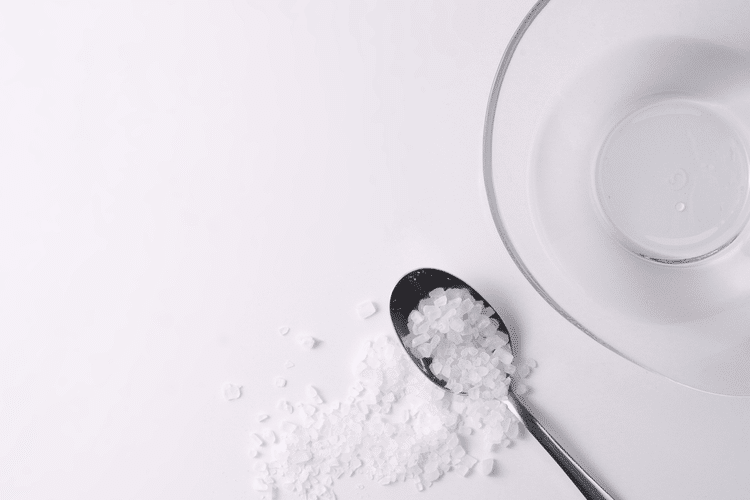
1. High Chloride Ion Concentration
The primary cause of the salty taste in water is increased chloride ion concentration. Various industrial processes use calcium, potassium, and sodium chlorides during manufacturing processes.
These chlorides can get into water through surface runoff or weathering. Inappropriate filtering of these ions will make your water supply produce a saline taste.
Pollution in your locality can contribute to chloride increase. People who live in the coastal region have high chances of drinking water with extreme chloride ions content as the seawater enters the water supply.
2. Water Softener Issue
Even though water softeners are efficient, they are also intricate products. Water softeners might not perform as expected, resulting in excessive salt getting into your water.
This means that the softening system can fail to work correctly, affecting your water quality. Besides, there are high chances that the softener could be programmed inaccurately, making the system release more salt than required.
A clogged system might also be another reason for a salty taste in your drinking water. If this is the issue, you need to clean or replace the tanks or drain lines.
3. A Spike in Sulfate Levels
High sulfate concentration is another cause of salty taste in your water supply. Sodium sulfate and magnesium sulfate are naturally occurring minerals from the earth. The minerals get into groundwater after a heavy downpour through soils and rocks.
Fertilizer runoff and industrial waste are other ways sulfates can get into your water supply. The primary cause of high sulfate concentration is shale waste. Therefore, it is advisable to know the exact cause of saline taste in your water supply.
What Is Salty Taste in Your Mouth a Symptom Of?
The salty taste in your mouth could be a symptom of dehydration, dry mouth, acid, nutritional deficiency, oral bleeding, or post-nasal drip.
1. Dehydration
The saline taste in your mouth could result from low body fluids (dehydration). You can get dehydrated after exercises or vomiting, resulting in extreme thirst, fatigue, confusion, and dizziness.
According to Mayo Clinic, dehydration can result in various health conditions, including:
- Kidney issues
- Heat exhaustion
- Seizures
- Urinary tract infections
Ensure you drink more fluids or visit the nearest hospital for further check-ups and treatments.
2. Dry Mouth
The sudden salty sensation in your mouth could be due to a dry mouth.
You may have a dry mouth due to medication side effects, aging, or tobacco use. If you have a dry mouth, you might experience:
- Salty or odd taste
- Sore throat
- Stringy saliva
- Bad breath
- Grooved tongue
- Hoarseness
- Stickiness in your mouth
Drink more water and avoid salty foods to overcome a dry mouth. In addition, chewing gums play a vital role in stimulating saliva production.
3. Acid
Acid can make you have a saline taste in your mouth. The acid could be from stomach acids that get into the esophagus and then into the mouth.
4. Nutritional Deficiency
A lack of vital nutrients can cause saltiness in your mouth.
Nutritional deficiency develops over time, leading to health complications. To prevent this, ensure you eat foods with lots of nutrients.
5. Oral Bleeding
Oral bleeding can cause your mouth to have a saline taste.
Bleeding could be a result of brushing your gums vigorously using a hard-bristled toothbrush or eating sharp foods. Continuous oral bleeding can lead to gum diseases; hence it is advisable to see your dentist.
6. Post-nasal Drip
Allergies and sinus infections can cause post-nasal drip. When you are sick, mucus can accumulate in the back of your throat. It can mix with saliva and drop from the nose into the mouth, causing a saline taste.
How Does Salt Get in Water?
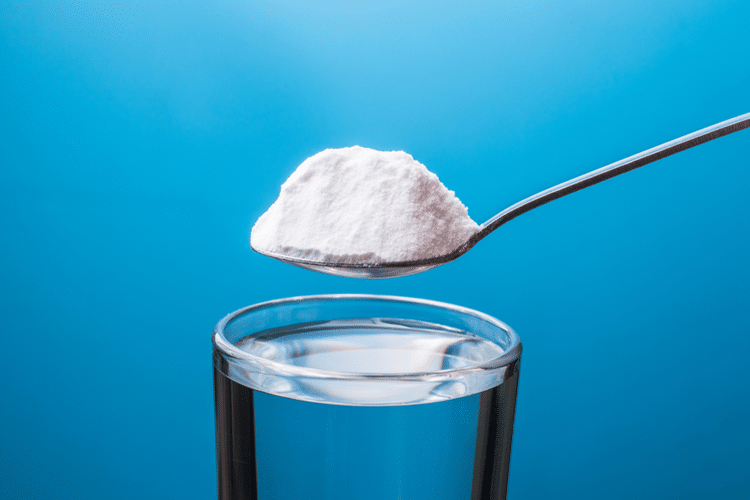
Salt gets in water when contaminants or heavy metals with salt mix with freshwater. Contamination can happen at the water source, during transit, or at the point of use.
Establishing the source of salt in water isn’t easy. Below are possible routes salt gets into your water.
- Salt deposits erosion into groundwater in your local area
- Surface runoff from road salt
- Naturally occurring salts from underground aquifers
- Agricultural and industrial contamination
- Underground water contamination from sewage or liquid waste
- Heavy rains or high snow levels with a high sodium content that seep via rocks and soil
- Coastal flooding that contaminates seawater and eventually your groundwater
How To Fix Salty Water in Your Home
Knowing the exact reason for salty water in your home will help you fix the issue. You also need to know the specific contaminants to determine which water treatment method you will apply to remove them.
To decrease or get rid of sodium levels in your water supply, you can use the reverse osmosis method. Distillation systems or ion exchange are also ideal, though costly.
Reverse Osmosis
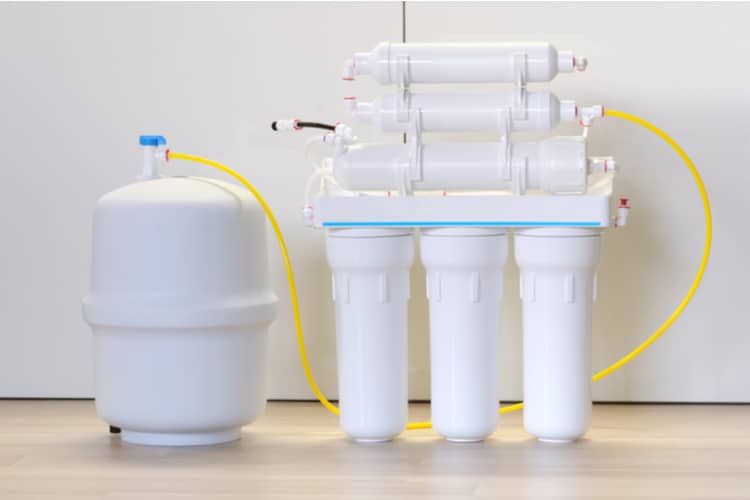
A quick method to eliminate the salty water issue is filtering the contaminants that cause the problem. However, chlorides and sulfates are not easy to get rid of, making reverse osmosis water filtration technique the most efficient treatment.
Reverse osmosis eliminates up to 99% of dissolved solids since it uses several filters coupled with various membrane steps or stages.
For instance, the semipermeable membrane has microscopic pores that only let water particles go through. The system then flushes out large particles down the drain.
Distillation
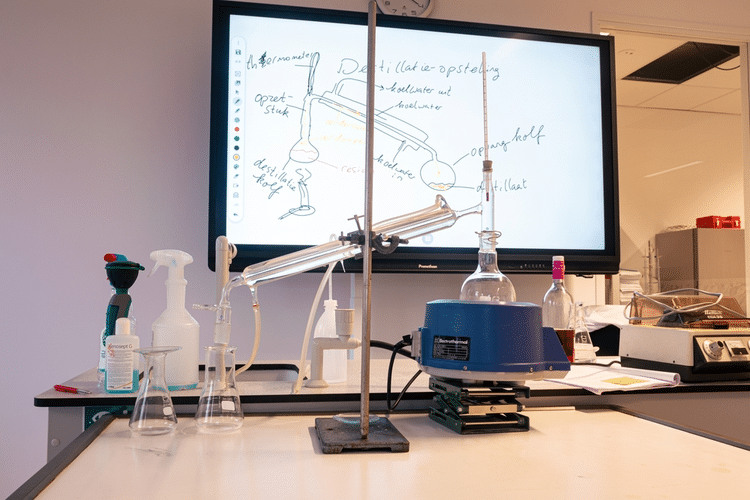
This method entails evaporating water, then collecting and condensing the vapor. Water with high salt concentration will remain as the residue, while freshwater will be the distillate.
Examine the Water Softener Installation
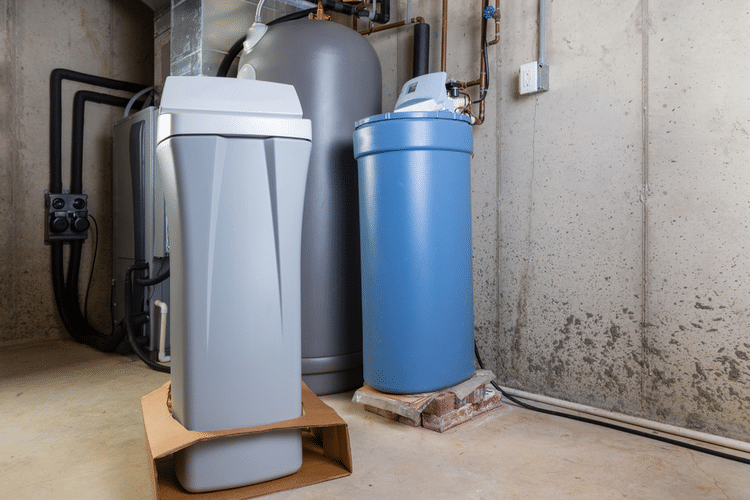
If you have installed a water softener and your tap water tastes salty, the issue could be that the system has broken or fitted incorrectly.
In this case, inspect the softener installation and examine every part for malfunction.